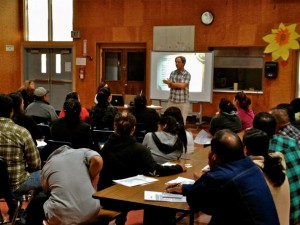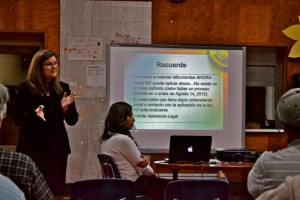Celebrating the dead, Puente style
At Puente, preparing for Día de los Muertos (Day of the Dead) is anything but macabre. At a joyful workshop in early October, women’s hands (and a few men’s) reach into mixing bowls filled with a gooey blend of water, powdered sugar and meringue. Fingers push the sweet paste into molds the shape of skulls, small enough to fit in the palm of a hand.
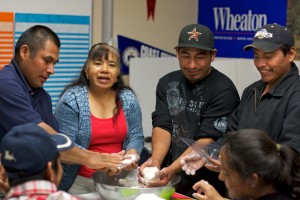
The faux skulls are the centerpiece of a Día de los Muertos tradition that has been rooted in Mexico for centuries. Puente’s adult community looks forward to the holiday festivities all year.
The sugar skulls are decorated with faux gems and paint, flowers and feathers. They will adorn a community altar, which will be displayed on November 1 at the final Pescadero Grown! Farmers’ Market of the season.
The Día de los Muertos program, run by Youth Program Associate Alejandra Ortega and part of the larger Madres Project funded through the Bella Vista Foundation, also involves making hundreds of beautiful paper flowers and artisanal Pan de Muerto (Bread of the Dead).
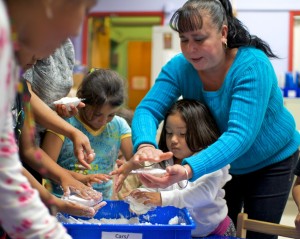
Día de los Muertos is a deeply personal ritual, and often an occasion to memorialize a loved one.
“I am dedicating this sugar skull to my parents and one of my brothers who died,” said Irma, a workshop participant who came in to decorate the sugar skull she made.
“My sugar skull is inspired by my grandma. She died of breast cancer last year,” said Gaby, who was there too.
When the altar goes on display, it will be laid with candles, art and photos commemorating the dead.
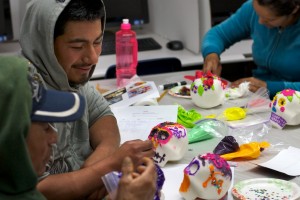
Día de los Muertos also has a strong element of nostalgia, and so in that way it is oddly comforting, says Rita Mancera, Program Director.
“It’s not just about death, it’s also about loss – the things they had to leave in Mexico – the people, but also the life they left behind,” explains Mancera. “By celebrating it, it helped them remember those good times.”
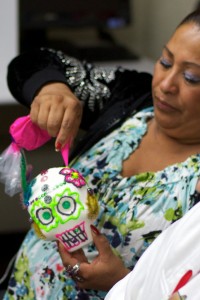
The Madres Project helps combat maternal depression by connecting South Coast mothers with one another in a culturally resonant way. The idea is to create opportunities for group interactions that bring joy and a sense of community to those who may feel isolated. Bella Vista continues to award Puente $40,000 annually for Día de los Muertos, to stage the Christmas Posada and to provide counseling year-round.


